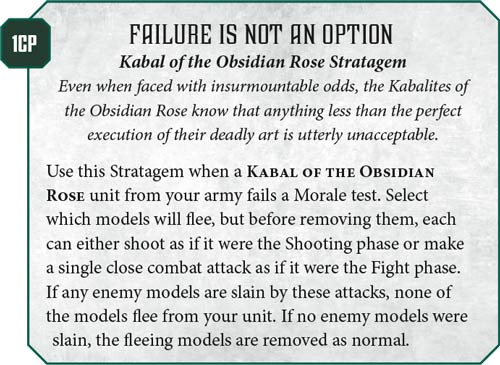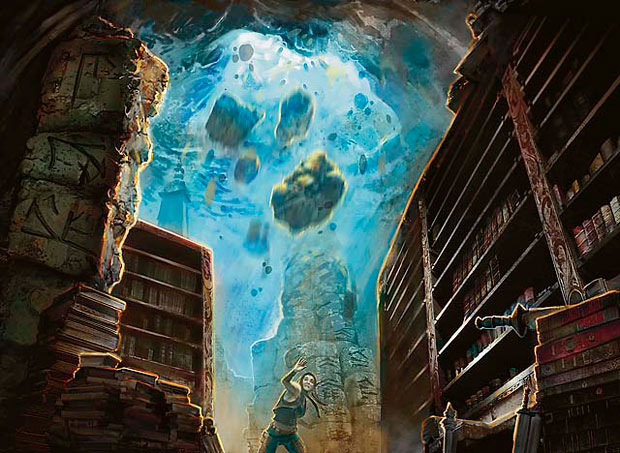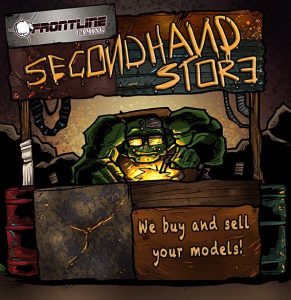Failing an important die roll can often be a disheartening experience for a players- especially when the roll is the crux of story events. As a DM, how can you ensure there are consequences for failure while still keeping the drama and tension of a story?

Failure Is An Option
Sooner or later, your players are going to fail a roll on something important. Catching ahold of a tree branch as they fall, looking up information about a foe in an old library, escaping a castle as it collapses- all of these can be game-defining events that might call for a roll of some kind, but failure on the players’ part can feel very bad for everyone involved. As a DM you are the “enemy” of the players in the sense that you place obstacles in their way, but for the most part you don’t actually want them to fail, you want them to overcome those obstacles and be more heroic because of it. So how do we reconcile these two ideas?
Well, the simplest way is to take a cue from movies and other media. When a protagonist comes up against obstacles in movies or television, they do not triumph over every one of them immediately- it would make for a pretty poor story if they did! Instead, the heroes will sometimes succeed but sometimes also fail; however, these failures do not mean the end of a plotline but simply another detour that must be taken along the way.
This is a good model to use when making rolls in D&D. If your player slips and falls over a cliff, have them make the roll to catch themselves before they fall over the edge. If they succeed, great; you’ve had a moment of drama and the player feels good because their character’s quick reflexes saved them from certain doom. If they fail, oh no, they’ve gone over the edge! This can be a chance to call for another roll on their part (for example, to grab a tree branch on the cliffside), or a chance for someone else in the party to take action to save them- and building bonds with the party is a great way to make the game more personal and interesting.
Depending on the type of game you are running, it may be entirely possible for the players to simply die because of a bad roll- but you probably don’t want this to hinge on a single roll like this, because the flat probability distribution of a d20 makes such things incredibly risky.

There are also lots of consequences besides death, and ones that all media make use of. Perhaps the character is severely injured and loses the use of one arm, making fighting and spellcasting difficult or impossible until they get a certain level of magical healing. Get creative when inflicting consequences of failed rolls, because simply killing a player puts an end to the story- but inflicting them with a disadvantage makes things more difficult in the future and makes overcoming those difficulties part of their story.
Similarly, as we talked about in a previous article, don’t have failed rolls lead to dead ends or “no result.” A failed roll should always raise the stakes somehow and have consequences, because otherwise why were you rolling the dice in the first place? Making the players roll over and over again until they get a “good enough” result is completely pointless and wastes both time and destroys the tension at the gaming table.
Here are a few possible ways you can make failed rolls have consequences in a game to help get your inspiration flowing:
Social Challenges
- The NPC makes a demand of the players that will require special effort to fulfill, otherwise they won’t cooperate (e.g. “I need you to introduce my daughter to the prince, I know they’ll fall for each other.”)
- The NPC who has what they want is attacked by a third party and must be rescued.
- The party’s inquiries draw the attention of someone that will interfere directly.
Physical Challenges
- The character is injured beyond simply losing hit points (broken arm/leg, etc).
- Some of the character’s gear is lost or broken.
- The character ends up in a bad situation (trapped, entangled, surrounded, etc).
- The character’s struggles draw some enemies in to attack while they are vulnerable.
- The characters’ action block off the route they were trying to take, forcing them to find another.
- The character is forced to use up one of their limited daily abilities to save themselves.
Mental Challenges
- The characters find a reference to the information they seek, but it is located in another library.
- The characters find part of a clue, but it is damaged or destroyed in a way that renders it insufficient to use as evidence.
- The characters find information that can confirm multiple possible suspects or possibilities, but eliminates at least some suspects.
- The characters misinterpret information in a way that drives them towards a false lead, but one that eventually reveals itself.
- The characters complete the puzzle, but take more time or other resources than planned.
As always, remember you can get your roleplaying supplies at great discounts every day from the Frontline Gaming store, whether you’re looking to pick up a sourcebook for your character’s next level or some minis for a great encounter.


